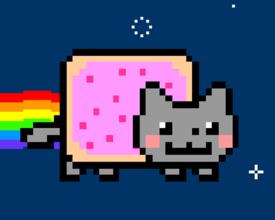Why does Atkins work?

sunlover89
Posts: 436 Member
I know how it works and what it's about, but if it's simply a matter of calories in vs out then why are so many people losing a lot of weight on atkins? I know people who eat their TDEE and over every day yet still shed weight consistently compared to when they they tried conventional dieting of eating less calories. I don't want to cause any debates here, I'm just after the science behind this particular diet as I can't seem to find it on Google.
I know for some people it doesn't work and I also imagine that if you suddenly stopped and ate "normally" you'd just put the weight back on.
I know for some people it doesn't work and I also imagine that if you suddenly stopped and ate "normally" you'd just put the weight back on.
0
Replies
-
they are eating under their TDEE0
-
also depleting glycogen makes you lose "fakeweight" otherwise known as waterweight.0
-
http://www.bodyrecomposition.com/fat-loss/insulin-sensitivity-and-fat-loss.html
Lyle McDonald explains it best at the link above. Some general info not included in above link is that being insulin resistant is the same thing as being prediabetic. Different names, same thing. One third of the American population is insulin resistant. Blood glucose kit can help you determine if you are sensitive or resistant.
Edit: Dr. Atkins created the diet for diabetics. With a one third estimation of the American population being insulin resistant, most people are in denial to get tested. AMA recommends you test if you have 30 pounds of excess fat. Oral Glucose Tolerance Test is more accurate at testing prediabetes, not fasting glucose test.
.0 -
IMO peps going on Adkins do two things....
1. eat at a deficit
2. finally avoid processed carbs.
I think it's really not eating food that comes out of a box that makes the difference.0 -
bump0
-
Thisalso depleting glycogen makes you lose "fakeweight" otherwise known as waterweight.0 -
They're still under calorie restriction.0
-
I don't want to enter into any debate about this one.... but the movie FatHead probably gives a better description of low to moderate carb theories than most things I have seen. You can watch it free on youtube.
 http://www.youtube.com/watch?v=evcNPfZlrZs
http://www.youtube.com/watch?v=evcNPfZlrZs
The gist of it is lowering your blood glucose by consuming less sugars/starches, and thus your insulin response....which in turn should lower the fat storage.
Folks will debate till blue in the face over it all.
Personally, I can only say moderate to lower carb has helped me control blood sugars and drop pounds better than calorie control alone. But I also agree, the overall calorie number is important too. I don't think too low is good, nor do I think an unlimited amount of calories is fine even if it is low carb.
I think different bodies have slightly different needs. Overall, it is worth paying attention to BOTH calories and carbs in my opinion. I hope the link helps.0 -
I don't want to enter into any debate about this one.... but the movie FatHead probably gives a better description of low to moderate carb theories than most things I have seen. You can watch it free on youtube.
 http://www.youtube.com/watch?v=evcNPfZlrZs
http://www.youtube.com/watch?v=evcNPfZlrZs
The gist of it is lowering your blood glucose by consuming less sugars/starches, and thus your insulin response....which in turn should lower the fat storage.
Folks will debate till blue in the face over it all.
Personally, I can only say moderate to lower carb has helped me control blood sugars and drop pounds better than calorie control alone. But I also agree, the overall calorie number is important too. I don't think too low is good, nor do I think an unlimited amount of calories is fine even if it is low carb.
I think different bodies have slightly different needs. Overall, it is worth paying attention to BOTH calories and carbs in my opinion. I hope the link helps.
What are your blood glucose levels on average? What were they before you went low carb?0 -
Higher protein = greater satiety = consistent calorie deficit0
-
6 oz of Boneless, skinless chicken breast is about 150 calories. 2 pieces of Wonder white bread is 158. Which of those will fill you up more and longer?
More protein normally equals less calories for more food and longer satiety.
It's a numbers game.
IMHO
I'm probably wrong, but it sounded good in my head.0 -
I'm probably wrong, but it sounded good in my head.
No, you're right.
Horizon (a science programme here in the UK) documentary: http://www.youtube.com/watch?v=laMuyJhMcE0 0
http://www.youtube.com/watch?v=laMuyJhMcE0 0 -
Higher protein = greater satiety = consistent calorie deficit
Not Atkins specifically but you also burn more calories digesting foods high in protein. I find that if I eat a diet higher in protein, I lose weight more easily without going to the extreme's of Atkins....even if the calorie count was the same.0 -
[/quote]
What are your blood glucose levels on average? What were they before you went low carb?
[/quote]
First, carb wise I have been usually in the 100 carb range. I do have occasional days that exceed. So I am not Atkins level low carb. But it does let me acheieve great control. When I started last year my fastings were regularly 135-155. My after meals and random could spike to around 200 ish at times. Not always, but often.
I am no longer even diabetic now...rather technically I am 'in remission'. I no longer take 2000 of metformin daily. My fasting blood sugars have not breached 105 in a while. Usually the 90's nowadays.
My fasting was always my biggest problem number. I have had no random or after meal reads go higher than 120 for a long time either, even when I cheat with a higher carb meal or snack occasionally. Staying overall lower/moderate carb has helped a ton. I also credit the Good Lord just having mercy on me too. :-)0 -
Oh, you eat LOTS of food out of the box on Atkins. Shakes, bars, baking mixes, low carb baked goods. All full of soy and artificial sweeteners.
You don't HAVE to do Atkins that way, but it is very easy to get sucked into it. So you wind up still eating a great deal of sweet foods.
I would recommend Gary Taubes as a resource if you are really interested in how insulin and hormones impact weight
Loss/obesity. They are currently researching which comes first, obesity or insulin resistance.
Is low carb for everyone? Nope. But for people with certain medical conditions, it is a great way to learn to use food as medicine. Johns Hopkins has been treating epilepsy with ketogenic diets for 100 years. The science IS there.0 -
Dr. Neil Barnard's Program for Reversing Diabetes
Food Revolution by John Robbins
Watch any lecture by Dean Ornish, M.D.
Excessive meat consumption triples your risk of certain types of cancers: mainly: breast, prostate and colon.
World class athletes are learning that vegan or vegetarian diets are giving them a performance edge in their sports.
Vegan and vegetarian diets are generally better at reducing insulin resistance (increasing insulin sensitivity).
The more vegetables you eat, the less of the bad stuff you eat.
Eating a meat heavy diet is quite probably bad for your kidneys, your vascular system, and your heart. The Western diet, high in meat consumption, tracks with heart disease and type 2 diabetes.
There are plenty of medical doctors that now advocate a vegetarian or vegan diet. Note, the first U.S. government panel tasked with creating the first food pyramid was going to advise Americans to eat "little to no meat products." The cattle association got an advanced copy of their report and collectively freaked the F out. They lobbied the government to rework their findings not include this suggestion in the final report. The entire history of this was published in the New York Times. It was about 15 pages worth of article. I didn't look extensively for it, but if you look for an NY Times article that talks about the food pyramid task force in the 70's, you're getting warmer.
Atkins is good at burning glycogen storage in your liver in the first weeks. This is the "easy" weight to lose. Weightloss slows way down after that. My brother has been on again off again Atkins and has
1) never been ever to stick to it for the longterm
2) never loses much after the first few weeks
3) belittles and condescends me constantly for being a vegetarian. I have lost 110 pounds since starting WW. For at least 5 years I have been a vegetarian, and I get to eat very large volumes of vegetables and thus can trigger the "full" sensation because eating sessions have to do with food volumes as much as anything else.
These are just my points. Google the things I've mentioned, consider reading the books I've mentioned, or watch Dean Ornish's lectures on YouTube.
I will not get mired in a debate over my facts. If you don't agree, feel free to post responses. But replying for me would just be redundant. I have heavily researched these issues. Atkins may work for some, but they are going to damage their kidneys in the long term because Ketosis is not a positive condition. It is the body's homeostasis run amok. Homeostasis is the measure of the body's internal functions working harmoniously and in alignment. Ketosis is not a positive internal body chemistry. At least research the critics of Atkins for their views on Ketosis. You are playing with your body chemistry in the worst way when you starve yourself of all carbs. I eat 200 or more carbs a day and I lose weight EASILY when I stick to program.
edit: I don't mean to sound hostile in that final paragraph. Debates over the Atkins diet on MFP boards are constant. People on both sides have very strong opinions about it. I usually stay out of it. People usually don't change their minds when they feel so strongly about it. I'm fine with anyone not agreeing with what I said in this post. But I'm prophylactically stating that I have said what I have to say, and if you don't agree, there is really nothing more I have to say against the Atkins diet.0 -
I don't want to enter into any debate about this one.... but the movie FatHead probably gives a better description of low to moderate carb theories than most things I have seen. You can watch it free on youtube.
 http://www.youtube.com/watch?v=evcNPfZlrZs
http://www.youtube.com/watch?v=evcNPfZlrZs
The gist of it is lowering your blood glucose by consuming less sugars/starches, and thus your insulin response....which in turn should lower the fat storage.
Folks will debate till blue in the face over it all.
Personally, I can only say moderate to lower carb has helped me control blood sugars and drop pounds better than calorie control alone. But I also agree, the overall calorie number is important too. I don't think too low is good, nor do I think an unlimited amount of calories is fine even if it is low carb.
I think different bodies have slightly different needs. Overall, it is worth paying attention to BOTH calories and carbs in my opinion. I hope the link helps.
Fathead's main takeaway is eating at a deficit causes weight loss, most of the other stuff in the movie was nonsense0 -
Myself, I don't eat the 'low carb' products. Never have. I agree they are full of junk. Might as well eat the Hershey bar I ate last night. LOL0
-
Consumption of protein signals the body to produce glucagon, which is the hormone that mobilizes fat stores. That, combined with carb reduction, results in weight loss. SMHO, but Atkins isn't doable for life.0
-
Because it has the side effect of putting the practitioner into a calorie deficit0
-
The calories in < calories out is a really really REALLY simplified method of describing how your body loses (or gains) weight. The reality is, not all your food gets fully digested and used by your body in most cases. This is why so many raw vegans and such can eat a MASSIVE amount of calories and not gain (and sometimes lose) weight. Its because the food is harder for the body to digest and quite often only a fraction of the amount is actually usable.
The same is true for the Atkins diet. The body does not effectively use fats and proteins to power the body. Your body runs on glycogen, or sugar. Protein, if I'm not mistaken, cannot be turned into sugar. Fats, on the other hand, can be, with much difficulty, turned into an energy source similar to sugar to be used by the body, but it is inefficient and puts you in a state of ketosis where sugar is completely depleted and they are going after the only thing that CAN be turned into energy, which is fat. This also includes body fat, not just the fat you are eating.
Fat and oils, however, can often slip and slide through our system fairly quickly, meaning that many of those fat calories, since they are eaten in such large volumes, cannot possibly be handled by the digestive system in our bodies. The result is that much of the fat gets flushed out. In the end, the total calories that the body ACTUALLY got is much less than what was eaten. This, as you can see, creates the calorie deficit.
The metabolic system of the body is far more than the simplified calories in and calories out paradigm, but that way of thinking is good for a lot of cases. Just not all. No laws of thermogenesis are being broken here, its just that the body gets rid of what it can't use at the moment (digestive wise).0 -
As a side note, the Atkins diet is NOT a healthy way to lose weight. Please don't consider it...0
-
I know how it works and what it's about, but if it's simply a matter of calories in vs out then why are so many people losing a lot of weight on atkins? I know people who eat their TDEE and over every day yet still shed weight consistently compared to when they they tried conventional dieting of eating less calories. I don't want to cause any debates here, I'm just after the science behind this particular diet as I can't seem to find it on Google.
I know for some people it doesn't work and I also imagine that if you suddenly stopped and ate "normally" you'd just put the weight back on.
No you don't...0 -
As a side note, the Atkins diet is NOT a healthy way to lose weight. Please don't consider it...
why not?0 -
What are your blood glucose levels on average? What were they before you went low carb?
First, carb wise I have been usually in the 100 carb range. I do have occasional days that exceed. So I am not Atkins level low carb. But it does let me acheieve great control. When I started last year my fastings were regularly 135-155. My after meals and random could spike to around 200 ish at times. Not always, but often.
I am no longer even diabetic now...rather technically I am 'in remission'. I no longer take 2000 of metformin daily. My fasting blood sugars have not breached 105 in a while. Usually the 90's nowadays.
My fasting was always my biggest problem number. I have had no random or after meal reads go higher than 120 for a long time either, even when I cheat with a higher carb meal or snack occasionally. Staying overall lower/moderate carb has helped a ton. I also credit the Good Lord just having mercy on me too. :-)
I don't have much to say about this. I just wanted to say congratulations and way to go!!! That's great news. 0
0 -
because people who eat atkins eat less calories, until they start eating sticks of butter like this guy.
<
0 -
Read "It starts with food". It's a paleo book but explains the endocrine system really well.0
-
The calories in < calories out is a really really REALLY simplified method of describing how your body loses (or gains) weight. The reality is, not all your food gets fully digested and used by your body in most cases. This is why so many raw vegans and such can eat a MASSIVE amount of calories and not gain (and sometimes lose) weight. Its because the food is harder for the body to digest and quite often only a fraction of the amount is actually usable.
The same is true for the Atkins diet. The body does not effectively use fats and proteins to power the body. Your body runs on glycogen, or sugar. Protein, if I'm not mistaken, cannot be turned into sugar. Fats, on the other hand, can be, with much difficulty, turned into an energy source similar to sugar to be used by the body, but it is inefficient and puts you in a state of ketosis where sugar is completely depleted and they are going after the only thing that CAN be turned into energy, which is fat. This also includes body fat, not just the fat you are eating.
Fat and oils, however, can often slip and slide through our system fairly quickly, meaning that many of those fat calories, since they are eaten in such large volumes, cannot possibly be handled by the digestive system in our bodies. The result is that much of the fat gets flushed out. In the end, the total calories that the body ACTUALLY got is much less than what was eaten. This, as you can see, creates the calorie deficit.
The metabolic system of the body is far more than the simplified calories in and calories out paradigm, but that way of thinking is good for a lot of cases. Just not all. No laws of thermogenesis are being broken here, its just that the body gets rid of what it can't use at the moment (digestive wise).
Not sure if srs0 -
It stresses the liver and kidneys (sometimes permanent damage that takes several years to show up in blood tests), leads to weaker bones due to the rise in acidity of the blood (which is countered by the release of bone calcium to lower it to less dangerous levels, causing osteoporosis even in young adults), has been shown to thicken and stiffen arterial walls, starves the muscles of glycogen (an ESSENTIAL element to muscular performance and re-building), increases the incidence of various cancers (ESPECIALLY colon cancer, as well as stomach and esophageal cancers), and can cause severe cases of dehydration (adequate hydration on the cellular level are essential for proper athletic, functional, and cognitive performance).
In short, long term it will kill you. And we all know that effectively losing weight is about making lifestyle changes, not fad diets, so I'm assuming most people arguing FOR Atkins diets are promoting a long term lifestyle. If this is not the case, then I wouldn't listen to them anyways as they obviously aren't looking to help you anyway, as short fad diets typically result in regaining the lost weight and then some.0 -
I hate it when people say "Atkins is dangerous" or "It's unhealthy"
Me as a former type 2 diabetic was unhealthy.
Eating low carb, i eat more vegetable than most people I know. I am a chef, I see what garbage people eat daily. I won't eat it.
I eat whole, unprocessed food. Lots of salad veggies. My total cholesterol as of yesterday is 158. My BP is normal. All my blood tests came back normal. CMC, CBC, Vitamin B12 (was deficient before), Vitamin D (I was DANGEROUSLY deficient).
My health is 100% better now. And I eat more calories. And I eat nothing out of a box or shake mix, or "food" bar.0
This discussion has been closed.
Categories
- All Categories
- 1.4M Health, Wellness and Goals
- 398.2K Introduce Yourself
- 44.7K Getting Started
- 261K Health and Weight Loss
- 176.4K Food and Nutrition
- 47.7K Recipes
- 233K Fitness and Exercise
- 462 Sleep, Mindfulness and Overall Wellness
- 6.5K Goal: Maintaining Weight
- 8.7K Goal: Gaining Weight and Body Building
- 153.5K Motivation and Support
- 8.4K Challenges
- 1.4K Debate Club
- 96.5K Chit-Chat
- 2.6K Fun and Games
- 4.8K MyFitnessPal Information
- 12 News and Announcements
- 21 MyFitnessPal Academy
- 1.6K Feature Suggestions and Ideas
- 3.2K MyFitnessPal Tech Support Questions

















